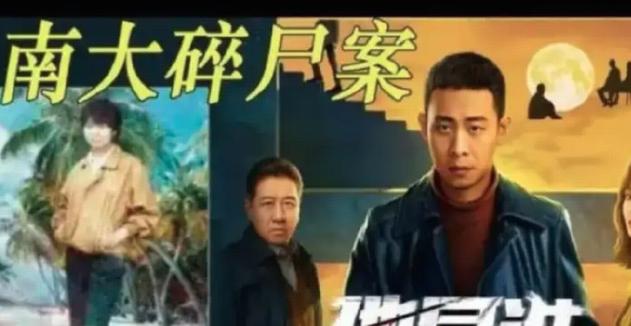Legal and Ethical Issues in Adapting True Crime Cases: The Nanjing University Dismemberment Case
The family of Gao Aiqing, victim of the 1996 Nanjing University dismemberment case, has filed lawsuits against production companies and actor Zhang Yi over a controversial TV drama adaptation that allegedly defamed the victim through fictional storylines.

In December 2024, a deeply personal letter emerged addressing a contentious issue in China’s entertainment industry. The letter, written by the brother-in-law of Gao Aiqing - a 19-year-old Nanjing University student who was brutally murdered in 1996 - expressed profound distress over a television drama titled “Who Is He” that aired in March 2023.
The drama took significant creative liberties with the real-life cold case, including fabricating romantic relationships and personal details about the victim. The show’s character “Yu Aiying” bore striking similarities to Gao Aiqing, from the phonetic resemblance of their names to specific details about their personal effects.
The victim’s family has taken legal action against three major companies involved in the production: Wanda Television Drama, Youku, and Alibaba Software. Their primary grievances center on unauthorized use of the case and the addition of fictional elements they consider defamatory to the victim’s reputation.
This situation highlights the complex intersection of creative freedom and ethical responsibility in adapting true crime stories. While Chinese copyright law does not protect raw facts, it does safeguard against defamation and unauthorized use of personal information that could damage reputation or cause emotional distress.
The family had previously attempted to resolve the matter directly with the production companies. However, the companies only offered to remove certain controversial content while refusing to issue a public apology or make more substantial changes. This partial concession failed to address the family’s core concerns about dignity and respect for their loved one’s memory.
The case raises important questions about the responsibilities of content creators when adapting sensitive true crime stories. While dramatic adaptations can raise public awareness about unsolved cases, they must balance creative expression with respect for victims and their families. The addition of fictional romantic entanglements or personal details without family consultation can inflict fresh wounds on those still grieving.
The victim’s elderly parents have suffered severe health deteriorations since the drama’s release, highlighting the real human cost of sensationalizing tragic events for entertainment. Their story serves as a powerful reminder that behind every cold case are real people still carrying deep emotional scars.
This controversy also reflects broader societal tensions between commercial entertainment interests and the rights of crime victims' families. It underscores the need for clearer ethical guidelines and potentially stronger legal protections regarding the adaptation of unsolved criminal cases.
The family’s appeal to actor Zhang Yi, while legally tenuous, represents a desperate attempt to gain public attention for their cause through his celebrity status. Their struggle illustrates how victims' families often lack effective recourse when their personal tragedies become fodder for commercial entertainment.